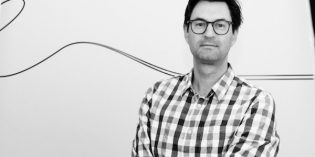Career Boosters is a monthly e-panel discussion led by Boost Agents. We scout out leaders in the marketing, digital, communications and advertising spaces to provide their perspectives on industry topics related to career development, talent acquisition and hiring practices.
For this feature, we spoke to Catherine Dorion, Brand Strategist at DentsuBos; Chris Neary, Brand Strategist at Frank Strategy; Paula Olsen, Marketing and Brand Strategist at Prizm Branding; and Dawn Whiteman, Director of Planning at Extreme Group.
Tell us about your typical day–who do you meet with and deliver to, and what are you expected to deliver?
Neary: I typically spend my day with a creative director (ideating a company position), a researcher (looking for customer insights), a graphic designer (creating a visual identity), a writer (explaining the brand in words), and of course, a client (setting objectives and evaluating progress). A typical project takes three months and I’m not expected to deliver every day. The client expects weekly progress updates. Inevitably, we produce a Brand Model and Graphic Styleguide.
Give us the gist of what brand strategy is all about.
Whiteman: Strategy itself is just a plan that clearly articulates where we are now, where we want to go and how we’re going to get there. Applying that to brands, it’s really a filtering process that provokes a series of decision points to sort the many facets of a brand and business into the most relevant, so both the organization and its intended consuming market are clear on the promise the brand makes and why they would care. It’s a process of both seeing and seeking the truth, and being courageous enough to commit to what has true value to the most receptive audience, and accepting the rest as a point of parity or a point of entry.
What are some crucial skill sets a Brand Strategist must possess? How do you recommend honing these skill sets?
What kind of professional and academic background does this role call for?
Dorion: Textbook answer? Marketing experience. Reality: anything. Take my team, for instance. We work in a creative agency, so it might be different from working on the client side, but we all come from different backgrounds. I studied law, some of my colleagues studied political science, others studied literature and only two actually studied marketing. We each bring a truly unique approach to the table – it might sounds like a circus, but actually, that’s why the magic happens.
What career trajectory can a person aiming for this job title expect over time?
Neary: They’d probably start as an account exec in a large ad agency, PR firm, or marketing agency. Then move into a management position in charge of their own accounts. Then move to a smaller agency where they start to help run business development and get a broader role, experiencing some operational aspects. Then go out on their own and form a partnership in a new company. Then, hopefully, they hire staff and go buy a boat.
Tell us about your biggest challenges working in this field, and how you tackled them.
Whiteman: Fear is the biggest challenge – fear of making the wrong decision, fear of being accountable, fear of discovering what you thought was true about your brand or why your consumers love you, isn’t. This is where being able to emphasize and achieve clarity are the most important skills of a strategist. There is an art to revealing the truth, both in uncovering it and also in delivering it with intelligence and grace.














